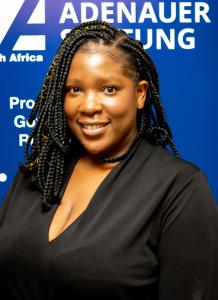On the top of the list was Artificial Intelligence (AI) as it continues to raise questions about ethics and transparency when used by newsrooms. The rapid evolution of AI was identified as a concern, particularly where misinformation and disinformation are involved. Speaking of which, the participants lamented the dearth of misinformation and disinformation campaigns in their countries and the work that newsrooms and other civil society organisations must do to counter it and keep audiences on the lookout for fake news.
The digitisation of newsrooms across the world was also a topic that engaged participants. The question of how to garner and keep younger audiences engaged with serious news as well as other media products. One participant from Mali noted that in countries of conflict and insecurity, the safety of journalists is paramount. The balance of sharing important information and the survival of the journalists is a precarious one.
A colleague from Tanzania shared that internet penetration is not as high, especially in the rural areas, and as a result, newsrooms must become creative about their work and how they disseminate it. This raised the topic of using social media to share news – which has been successful for newsrooms in our host nation and in others such as Zimbabwe.
Over the three-day conference, despite the numerous issues discussed, it was apparent that local journalism across the globe shares similar challenges regardless of location and circumstance, and that the only way to tackle these problems is via conversation, collaboration and solution sharing.
关于这个系列
德国康拉德•阿登纳基金会、它的培训机构、教育中心和其国外代表处每年举办数千个不同主题的活动。关于重要国际会议、大事活动、专题讨论会等等的报道我们及时且独家的公布在我们的网页www.kas.de。在这里您除了可看到内容摘要之外,还可看到额外的材料,例如照片、演讲稿、影片或录音。




